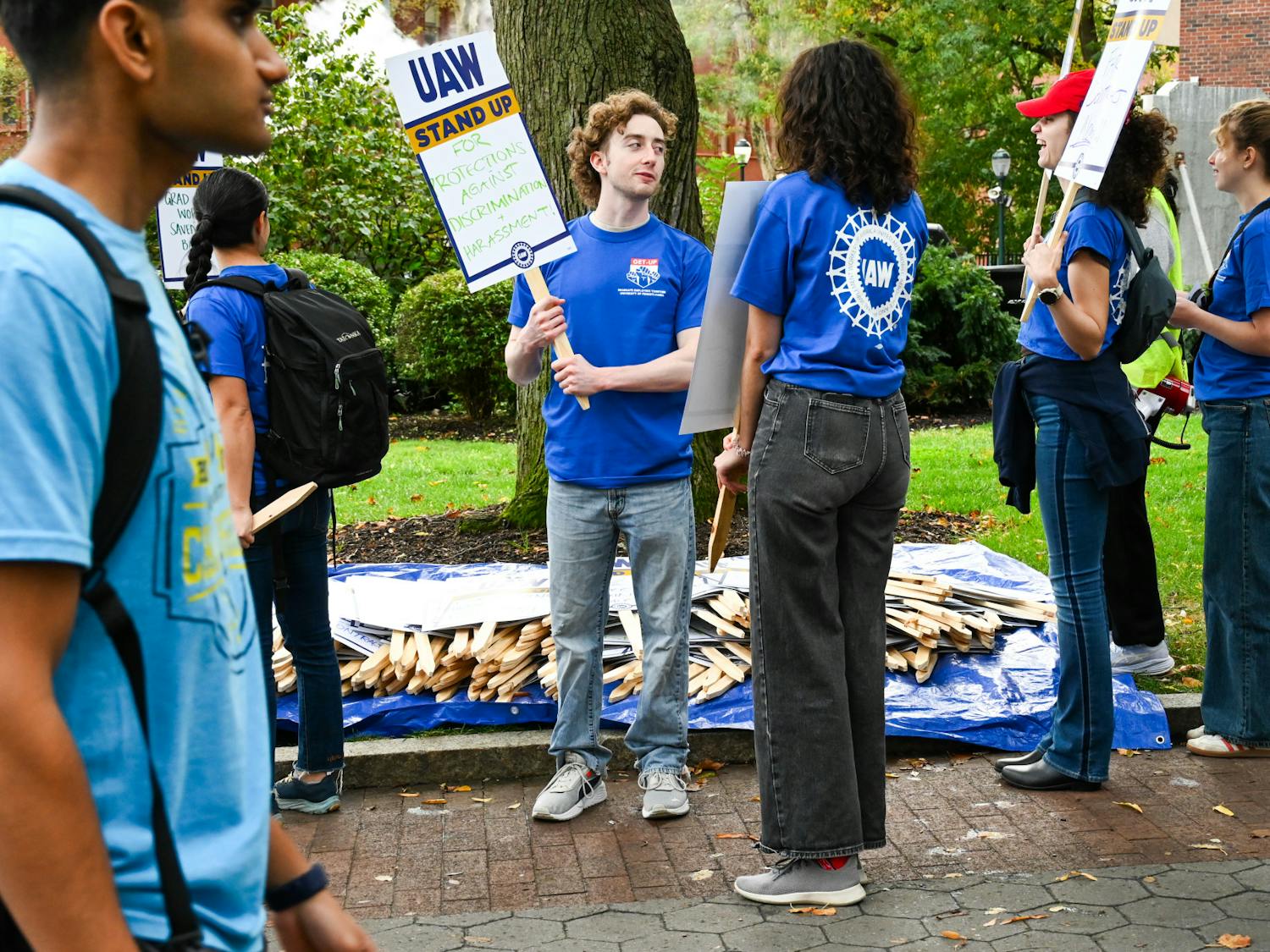University officials said they hope to act soon on some of the recommendations made in the three reports on residential security released yesterday by acting Vice Provost for University Life Valarie Swain-Cade McCoullum. Interim President Claire Fagin said the report by a committee of officials, students and staff members about the performance of McGinn Security Services was "the best thing that ever happened" regarding the University's relationship with McGinn. The committee gave McCoullum three options from which to chose, including immediate termination of the McGinn contract. The other two options include placing McGinn on a 90-day probationary period and amending McGinn's contract to make it end on June 30 of this year. The contract is set to expire in 1998. If the later option is chosen, McGinn will have to rebid, along with other security firms, in order to receive the contract. McCoullum is expected to announce her decision regarding McGinn by the end of this week. She said Monday she was unaware until reading the report that the original agreement between the University and McGinn has no guidelines for guard performance. Fagin said future contracts should explicitly state what the guards' performance standards should be. "Clearly no contract will be purchased with anyone that has no reference to performance standards," she said. Director of Public Safety George Clisby agreed, saying contracts with any security firm should have provisions stating responsibilities and standards for the guards. "We need some way to measure the quality of service we're receiving," he said. Executive Vice President Janet Hale said the reports also help to illustrate what options the University has in establishing its residential security policy of the future. Clisby said he agrees with the recommendations issued by two independent security consultants on residential security at the University. Specifically, he said residential security can be improved if his department is given responsibility for it. "I don't think it could hinder operations, it could only enhance it," he said. If residential security was placed under the Department of Public Safety, Hale will ultimately oversee the Department's coordination of security policy, replacing McCoullum, who currently oversees residential security. Clisby urged the University to consider the consultants' recommendation to give security guards more responsibility to patrol floors and building exteriors. But, he added that it remains to be seen whether this is feasible. More guards will be needed on the shifts if the job descriptions are expanded, Clisby said. "It would only be appropriate for [the guards] to leave the work station if they were relieved by another guard," he said. "This is a common security practice." Hale said she is concerned with the "technology needs and personnel needs" that will be required for the policy to be implemented. But, McCoullum stressed that the University is open to suggestions on how to increase safety in the residences. "Regardless of cost implications, whatever we need to do to best assure the safety of our students is of paramount concern to me," she said. Fagin said she is particularly impressed with the report done by Richard Schwab, clinical director of the Penn Center for Sleep Disorders. "I like that McGinn has met with Dr. Schwab about improving the shifts," she said. Fagin said regardless of McCoullum's decision concerning McGinn, the potential problem of guards falling asleep on the graveyard shift will still exist. For this reason, she said she believes it may be better for the Department of Public Safety to handle matters concerning residential security. "There are things in the VPUL office that belong elsewhere," Fagin said. Joseph McGinn Sr., president of McGinn Security Services, would not comment for this article.
The Daily Pennsylvanian is an independent, student-run newspaper. Please consider making a donation to support the coverage that shapes the University. Your generosity ensures a future of strong journalism at Penn.
Donate







